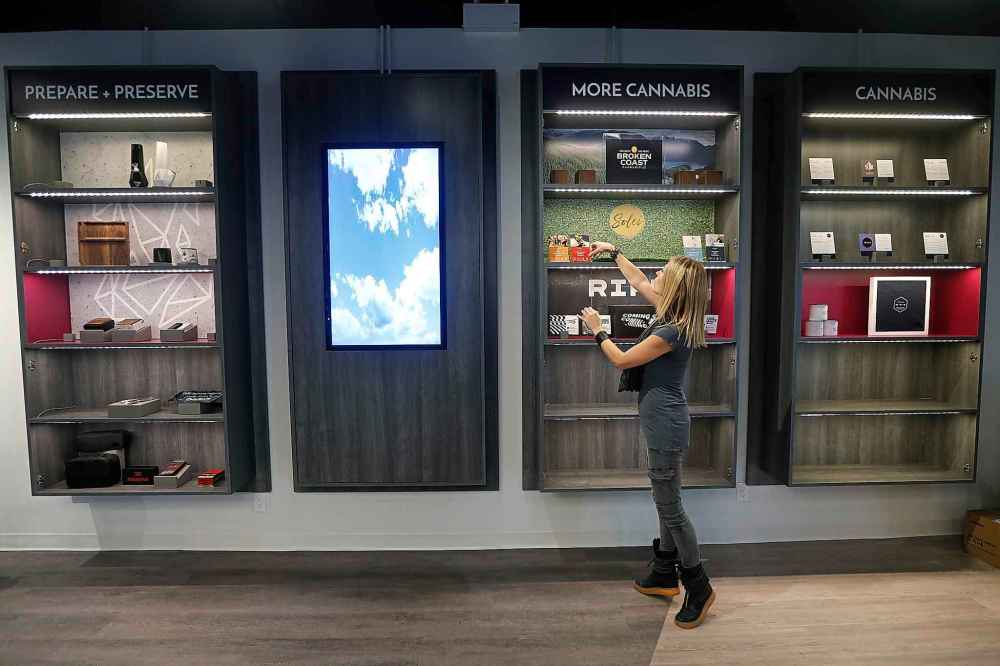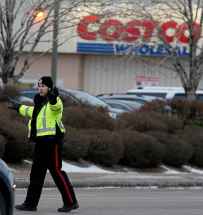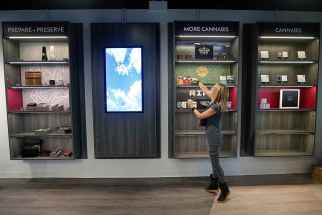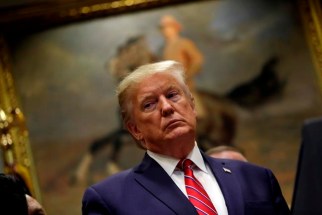Manitoba posts middle-of-the-pack per capita pot sales
Read this article for free:
or
Already have an account? Log in here »
To continue reading, please subscribe:
Monthly Digital Subscription
$0 for the first 4 weeks*
- Enjoy unlimited reading on winnipegfreepress.com
- Read the E-Edition, our digital replica newspaper
- Access News Break, our award-winning app
- Play interactive puzzles
*No charge for 4 weeks then price increases to the regular rate of $19.00 plus GST every four weeks. Offer available to new and qualified returning subscribers only. Cancel any time.
Monthly Digital Subscription
$4.75/week*
- Enjoy unlimited reading on winnipegfreepress.com
- Read the E-Edition, our digital replica newspaper
- Access News Break, our award-winning app
- Play interactive puzzles
*Billed as $19 plus GST every four weeks. Cancel any time.
To continue reading, please subscribe:
Add Free Press access to your Brandon Sun subscription for only an additional
$1 for the first 4 weeks*
*Your next subscription payment will increase by $1.00 and you will be charged $16.99 plus GST for four weeks. After four weeks, your payment will increase to $23.99 plus GST every four weeks.
Read unlimited articles for free today:
or
Already have an account? Log in here »
Hey there, time traveller!
This article was published 11/12/2019 (2195 days ago), so information in it may no longer be current.
Manitoba is in the middle of the provincial pack in terms of retail cannabis sales per capita, according to a Statistics Canada analysis of the first year of Canada’s legal cannabis market.
The report released Wednesday says interprovincial differences in legal cannabis sales are partly explained by varying levels of access to bricks-and-mortar stores.
"We learned very quickly that consumers prefer in-store shopping, which means that provinces need enough stores to support their population," said Brock University business Prof. Michael Armstrong, who analyzes retail cannabis trends.
"So most provinces now have a good basic network — of course, Alberta has a huge one. In fact, Alberta, I think, is reaching its saturation point given the numbers and the sales trends I’m starting to see there, but that remains to be seen."
Manitoba’s legal cannabis sales per capita totalled $41 between October 2018 and September 2019, Statistics Canada found.

!function(e,i,n,s){var t=”InfogramEmbeds”,d=e.getElementsByTagName(“script”)[0];if(window[t]&&window[t].initialized)window[t].process&&window[t].process();else if(!e.getElementById(n)){var o=e.createElement(“script”);o.async=1,o.id=n,o.src=”https://e.infogram.com/js/dist/embed-loader-min.js”,d.parentNode.insertBefore(o,d)}}(document,0,”infogram-async”);
The number is higher than the national average ($24) and well-above larger provinces such as Ontario, B.C., and Quebec, but lower than Alberta and the Atlantic provinces.
"My impression is that Manitoba’s actually in a pretty comfortable position," said Armstrong. "In terms of store count relative to population, it’s not as high as Alberta, but it’s probably got enough that store counts aren’t a huge limitation on its legal (cannabis) sales."
Matt Ryan, vice-president of marketing with Meta Growth, believes Manitoba has been punching above its weight in terms of cannabis sales revenue, in part because the province’s request for proposal process for retail stores started early.
"I think that can clearly be attributed to the way that Manitoba and the government did the RFP process to allow four of us retailers to be here and have a certain amount of stores," he said.
Meta Growth operates nine such stores in Manitoba, four of which are owned in partnership with First Nations. The company, formerly known as National Access Cannabis, also operates stores in Saskatchewan, Alberta and B.C.
“In terms of store count relative to population, it’s not as high as Alberta, but it’s probably got enough that store counts aren’t a huge limitation on its legal (cannabis) sales.” – Business professor Michael Armstrong
Even with legal cannabis available online in all provinces, the Statistics Canada analysis highlights the importance of bricks-and-mortar outlets. As the number of physical cannabis stores grew following legalization, the share of online legal cannabis sales "steadily declined from 43.4 per cent in October 2018 to 5.9 per cent of sales in September 2019," the national data bureau reported.
Ryan said the relative decrease in the proportion of online cannabis sales aligns with Meta Growth’s experience.
"Every week, we get new shipments of new products," he said. "So coming into the bricks-and-mortar environment, speaking with sales staff, seeing the product there and walking out the door with it is clearly the preferred method of buying behaviour with our customer. And we don’t see that changing."

Armstrong said the industry’s two biggest challenges during Year 1 of legalization were product shortages and a dearth of stores.
"Both those issues are mostly resolved, although here in Ontario, we still have a drastic shortage of stores," he said.
Headed into Year 2, Armstrong said there’s still more work to be done.
"Manitoba, like other provinces, now needs to work on its pricing to get product price in the ‘black market’ price range," he said.
"Go back a year, politicians were talking about cannabis pricing around $10 a gram. That’s fine for initial price, when your stores are just opening. But to compete against the black market pricing at $5 or $6 a gram, you have to provide legal products at $5 or $6 a gram."
“Manitoba, like other provinces, now needs to work on its pricing to get product price in the ‘black market’ price range,” – Michael Armstrong
Armstrong thinks adjusting the federal excise tax on cannabis, most of which is shared with the provinces, could be one way to bring prices down.
Ryan agreed, saying the cost of legal cannabis is on customers’ minds and there’s room for prices to fall in the future.
"Price will get affected as we all get more efficient with everything, for sure," said the Meta Growth executive. "And as long as additional fees and taxes don’t get added on to things, the end result for the customer is seeing the benefit, over time, of it coming down."

!function(e,i,n,s){var t=”InfogramEmbeds”,d=e.getElementsByTagName(“script”)[0];if(window[t]&&window[t].initialized)window[t].process&&window[t].process();else if(!e.getElementById(n)){var o=e.createElement(“script”);o.async=1,o.id=n,o.src=”https://e.infogram.com/js/dist/embed-loader-min.js”,d.parentNode.insertBefore(o,d)}}(document,0,”infogram-async”);
Manitoba cannabis sales totalled $56.1 million between legalization in October 2018 and September 2019, out of a national total of $907.8 million, Statistics Canada reported.
Canada had 407 legal cannabis stores as of July, the report said.
As of Wednesday, 28 cannabis store licences had been issued by Manitoba’s retail cannabis regulator the Liquor, Gaming and Cannabis Authority. Fourteen of those licences are in Winnipeg.
solomon.israel@freepress.mb.ca
Twitter: @sol_israel









